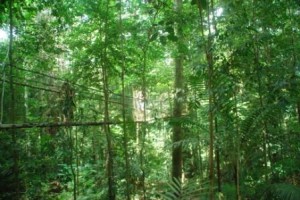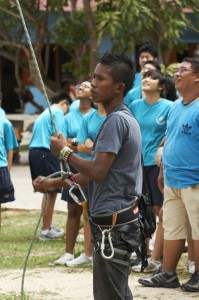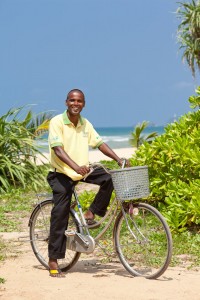 Reality Tours & Travel (RTT) is dedicated to raising social awareness about the strengths and challenges of the Dharavi Community and to raise funds for our social impact programs implemented in the the slum, Reality Tours and Travels started operating tours in February 2006. RTT’s famous Dharavi tour highlights the strength of the industry found in the slum and the vibrancy of the community. However it also discusses the daily realities of slum living such as pollution, poor working conditions, water and sanitation problems, and the lack of quality education.
Reality Tours & Travel (RTT) is dedicated to raising social awareness about the strengths and challenges of the Dharavi Community and to raise funds for our social impact programs implemented in the the slum, Reality Tours and Travels started operating tours in February 2006. RTT’s famous Dharavi tour highlights the strength of the industry found in the slum and the vibrancy of the community. However it also discusses the daily realities of slum living such as pollution, poor working conditions, water and sanitation problems, and the lack of quality education.
In addition to the Dharavi slum tour, RTT also offers unique experiential tours such as Bicycle, Market, Night and Public Transport Tours in Mumbai and also a village tour. Eighty percent of the profits or approximately 30% of the revenues from the tours go to support the operations of Reality Gives, RTT’s sister NGO. Tours in Dharavi are happening every day in the morning and afternoon and the prices range from Rs500 onwards. The ethical tour company was founded by UK national Chris Way and Krishna from Mangalore who came to Mumbai 18 years ago working as a waiter for Rs275 a week.
Reality Gives
 Reality Gives‘ mission is to create change and improve the quality of life in Dharavi’s vibrant community by supporting and connecting social entrepreneurship projects and mobilizing resources. The NGO runs English language Support Programs in vernacular schools with the aim to strengthen their curricula by creating a truly bilingual educational experience in a supportive environment. It has a community center where we run a Youth Empowerment Program for teenagers and young adults who have been unable to complete their formal education. The goal is for them to gain confidence, learn valuable skills such as facility with computer use and speaking English that will help them explore various career opportunities that might not have been previously open to them.
Reality Gives‘ mission is to create change and improve the quality of life in Dharavi’s vibrant community by supporting and connecting social entrepreneurship projects and mobilizing resources. The NGO runs English language Support Programs in vernacular schools with the aim to strengthen their curricula by creating a truly bilingual educational experience in a supportive environment. It has a community center where we run a Youth Empowerment Program for teenagers and young adults who have been unable to complete their formal education. The goal is for them to gain confidence, learn valuable skills such as facility with computer use and speaking English that will help them explore various career opportunities that might not have been previously open to them.
In addition, Reality Gives runs youth programs in art, sports, music, and computers so that young children can explore their world and gain confidence in expressing themselves. These programs were set up in partnership with other NGOs like Bombay Underground, YUWA, Under the Mango Tree and RUR.
The most recent project is the Girl’s Football Program in cooperation with Yuwa, an organization that implemented a successful girls empowerment program in Jharkhand, a state in North central India. 20 girls are visiting the training every day and their skills improve step by step.
Some of the major key achievements so far are:
 Educating 142 students using an English curriculum developed with the assistance of Malvern House in the UK.
Educating 142 students using an English curriculum developed with the assistance of Malvern House in the UK.- Training 17 teachers from Dharavi based on the Muktangan method and with the support of Educo. This has impacted the lives of 131 students.
- Supporting 2 local schools in English language support and a total of 250 students using our child-centred teaching methods.
The NGO is funded by Reality Tours and Travel and individual donations. To find out more about both, Reality Tours and Travel and Reality Gives, visit the websites www.realitytoursandtravel.com and www.realitygives.org as well as www.facebook.com/realitygives .



















